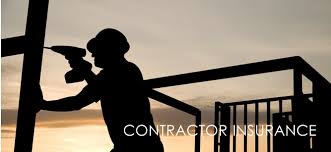If it's time to finally finish that basement or the year you refresh that tired old bathroom, maybe your office could use a redesign and some upgrades. Whether you are planning a renovation to your home or office space, AL SCHICK CONSTRUCTION can help! They specialize in residential and commercial projects including interior and exterior renovations....from offices to old character and newly built homes. If you are planning a project or a renovation on a specific area of your home or business, look to the experts at AL SCHICK Construction to get the job done right! AL SCHICK CONSTRUCTION a TRUSTED REGINA CONTRACTOR and Renovation Expert
Al's tip on hiring a Contractor
Adding a room, renovating a basement, or doing some much-needed repairs? Finding a good contractor is important — a home improvement project gone wrong can cost you. A good ad isn’t proof a contractor does quality work. Find out for yourself. Check with friends, neighbours, or co-workers who’ve had improvement work done, and check out a contractor’s reputation on online review sites you trust( Like Trusted Regina ). Get written estimates from several firms, keeping in mind the lowest bidder may not be the best choice. Also important: know the signs of a scam.
Finding a Contractor
Depending on how big or complex a project is, you might hire a:
- general contractor, who manages all aspects of a project, including hiring and supervising subcontractors, getting building permits, and scheduling inspections
- specialty contractor, who installs particular products like cabinets and bathroom fixtures
- architect, who designs homes, additions, and major renovations — especially ones involving structural changes
- designer or design/build contractor, who provides both services

Do Your Research
Check with friends, neighbours, or co-workers who’ve used a contractor
If you can, take a look at the work done and ask about their experience.
Look at sites you trust that post ratings and reviews
Do people seem to have similar experiences, good or bad? You also can check out a contractor’s online reputation by searching for the company’s name with words like “scam,” “rip-off,” or “complaint.”
Find out how long they’ve been in business
Look for an established company whose record and reputation you can check out.
Check for qualifications, like licensing
Many states, but not all, require contractors to be licensed and/or bonded. Check with your local building department or consumer protection agency to find out about licensing requirements in your area. Licensing can range from simple registration to a detailed qualification process. If your state or locality has licensing laws, make sure the contractor’s license is current.
Before You Hire a Contractor
Get Estimates
Once you’ve narrowed your options, get written estimates from several firms. Don’t automatically choose the lowest bidder. Ask for an explanation to see if there’s a reason for the difference in price.
Ask Questions
How many projects like mine have you completed in the last year?
Ask for a list so you can see how familiar the contractor is with your type of project.
Will my project require a permit?
Most states and localities require permits for building projects, even for simple jobs like decks. A competent contractor will get all the necessary permits before starting work on your project. You may want to choose a contractor familiar with the permitting process in your county, city, or town.
May I have a list of references?
A contractor should be able to give you the names, addresses, and phone numbers of at least three clients with projects like yours. Ask each client how long ago the project was and whether it was completed on time. Was the client satisfied? Were there any unexpected costs? Did workers show up on time and clean up after finishing the job? You also could tell the contractor that you’d like to visit jobs in progress.
What types of insurance do you carry?
Contractors should have:
- personal liability
- worker’s compensation
- property damage coverage
Ask for copies of insurance certificates, and make sure they’re current, or you could be held liable for any injuries and damages that occur during the project.

Will you be using subcontractors on this project?
If so, make sure the subcontractors have current insurance coverage and licenses, too, if required.
To find builders, remodelers, and related providers in your area that are members of the National Association of Home Builders, visit nahb.org. To find detailed information about a builder, service provider, or remodeler in your area, contact your local home builders association.
Understand Your Payment Options
Don’t pay cash
For smaller projects, you can pay by check or credit card. Many people finance larger projects.
Try to limit your down payment
Some state laws limit the amount of money a contractor can request as a down payment.
Try to make payments during the project contingent upon completion of defined amounts of work
This way, if the work isn’t going according to schedule, the payments to your contractor also are delayed.
Get a Written Contract
Contract requirements vary by state. Even if your state doesn’t require a written agreement, ask for one. It should be clear and concise and include the who, what, where, when, and cost of your project. Before you sign a contract, make sure it includes:
- the contractor’s name, address, phone, and license number (if required)
- an estimated start and completion date
- the payment schedule for the contractor, subcontractors, and suppliers
- the contractor’s obligation to get all necessary permits
- how change orders are handled. A change order is a written authorization to the contractor to make a change or addition to the work described in the original contract and could affect the project’s cost and schedule.
- a detailed list of all materials including each product’s colour, model, size, and brand. If some materials will be chosen later, the contract should say who’s responsible for choosing each item and how much money is budgeted for it (this is also known as the “allowance”).
- information about warranties covering materials and workmanship, with names and addresses of who is honouring them — the contractor, distributor, or manufacturer. The length of the warranty period and any limitations also should be spelled out.
- what the contractor will and won’t do. For example, is site clean-up and trash hauling included in the price? Ask for a "broom clause" that makes the contractor responsible for all clean-up work, including spills and stains.
- any promises made during conversations or calls. If they don’t remember, you may be out of luck — or charged extra.
- a written statement of your right to cancel the contract within three business days if you signed it in your home or at a location other than the seller’s permanent place of business.
